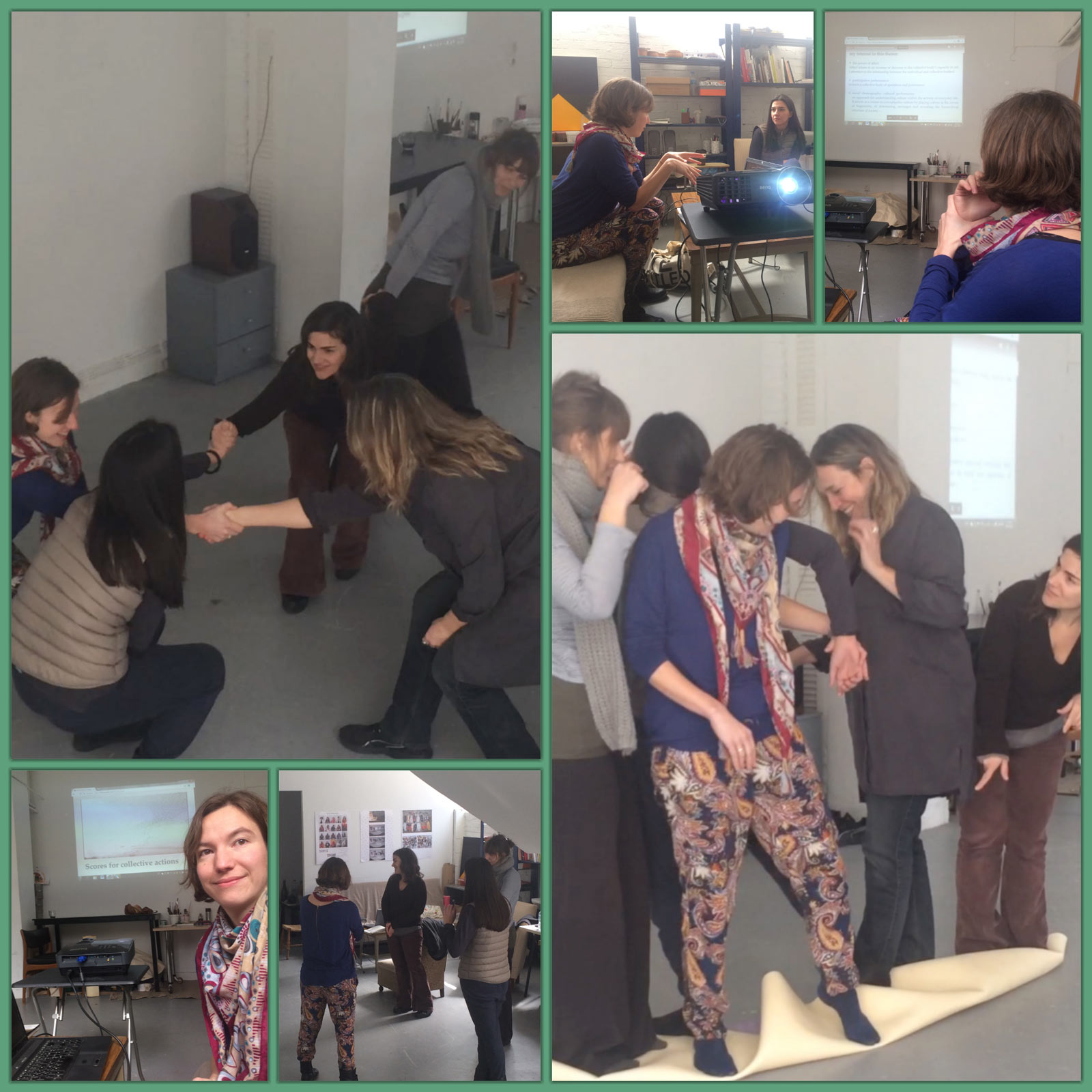Em/Power
embodied bodies of togetherness
In einem laborartigen Workshop öffnet Stephanie Felber mit Ihrem Team ihre künstlerischen Methoden / Herangehensweisen zu der aktuellen Produktion „vague de corps“. Es werden Einblicke in die Techniken der „performing scores“ und “Gemeinschafts- und Gruppenorganisationsformate“ gegeben. Welche Formen der Gemeinsamkeit können wir erreichen? Wie können wir ein Kollektiv erschaffen und organisieren? Wie richten wir eine Umgebung für ein optimales Zusammenspiel ein? Was sind pluralistische Handlungen und wie funktionieren diese? Wie nutzen wir Macht oder Entmächtigung für Autorität, Kontrolle oder Herrschaft?
Durch die Rolle des Körpers werden wir entdecken, wie die Zusammenkünfte mit unterschiedlichen Mechanismen zusammenhängen. Deshalb geht es nicht darum, ob ich kollektiv oder individuell handele, sondern welche Impulse kollektiver Dynamik ich mit meinen Handlungen geben will. Wir werden die integrativen und exklusiven Mechanismen des kollektiven Verhaltens an dem Beispiel von Tiergruppen erforschen. Wie schaffen sie unterschiedliche Formen und Bewegungen und wie erzeugen sie unterschiedliche kollektive Muster mit kleinen Variationen in den Regeln, gefolgt von einzelnen Gruppenmitgliedern, um sich als ein Kollektiv zu organisieren.
